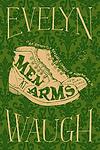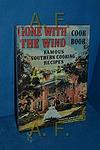The Greatest British "Historical fiction, Fiction, Satire" Books Since 1900
Click to learn how this list is calculated.
This list represents a comprehensive and trusted collection of the greatest books. Developed through a specialized algorithm, it brings together 300 'best of' book lists to form a definitive guide to the world's most acclaimed books. For those interested in how these books are chosen, additional details can be found on the rankings page.
Genres
Historical fiction is a genre of literature that combines fictional stories with real historical events, settings, and characters. These books often take place in a specific time period and are based on research and factual information, but also include imaginative elements to create a compelling narrative. Historical fiction allows readers to experience the past in a unique and engaging way, while also providing insight into the social, cultural, and political issues of the time.
Satire is a genre of literature that uses humor, irony, and exaggeration to criticize and ridicule human vices, follies, and shortcomings. It is a form of social commentary that aims to expose the flaws and absurdities of society, politics, and culture. Satirical books often employ sarcasm, wit, and parody to challenge the status quo and provoke thought and reflection in readers. Satire can be both entertaining and thought-provoking, and it has been used throughout history as a powerful tool for social and political critique.
Countries
Date Range
Reading Statistics
Click the button below to see how many of these books you've read!
Download
If you're interested in downloading this list as a CSV file for use in a spreadsheet application, you can easily do so by clicking the button below. Please note that to ensure a manageable file size and faster download, the CSV will include details for only the first 500 books.
Download-
1. Midnight's Children by Salman Rushdie
The novel tells the story of Saleem Sinai, who was born at the exact moment when India gained its independence. As a result, he shares a mystical connection with other children born at the same time, all of whom possess unique, magical abilities. As Saleem grows up, his life mirrors the political and cultural changes happening in his country, from the partition of India and Pakistan, to the Bangladesh War of Independence. The story is a blend of historical fiction and magical realism, exploring themes of identity, fate, and the power of storytelling.
-
2. The Prime of Miss Jean Brodie by Muriel Spark
The novel is set in 1930s Edinburgh and follows the story of six girls under the tutelage of an unconventional teacher, Miss Jean Brodie. Miss Brodie, in her prime, takes it upon herself to educate the girls about life, love, politics, and art, often disregarding the traditional curriculum. The narrative explores the influence of Miss Brodie on the girls, the consequences of her nonconformist teachings, and the ultimate betrayal that leads to her downfall.
-
3. A Dance to the Music of Time by Anthony Powell
"A Dance to the Music of Time" is a twelve-volume cycle that follows the life of the protagonist, a man from the upper-middle class in England, from his school days to his old age. The series provides a detailed and satirical depiction of British society and its changes over several decades, from the 1920s to the 1970s. The narrative is filled with a rich cast of characters from different social classes and backgrounds, whose lives intersect in various ways over time.
-
4. The Secret Agent by Joseph Conrad
"The Secret Agent" is a dark political satire set in London in the late 19th century, revolving around a secret agent who is also a shopkeeper, his anarchist friends, and his family. The story unfolds as the agent is coerced by his foreign employers to orchestrate a bombing in a bid to provoke a political response, but the plan goes disastrously wrong, leading to tragic consequences and a deep exploration of themes such as anarchism, espionage, terrorism, and betrayal.
-
5. Earthly Powers by Anthony Burgess
"Earthly Powers" is a sprawling, complex novel that explores the intertwined lives of a homosexual British writer and an Italian-American Cardinal over the course of the 20th century. The narrative delves into themes of faith, homosexuality, and the nature of evil, while also providing a critique of modern society. It's a vivid tapestry of historical events, including two World Wars and Vatican II, providing a backdrop for the personal and spiritual struggles of its protagonists.
-
6. Love in a Cold Climate by Nancy Mitford
Set in the 1930s, the novel revolves around the lives of British aristocracy, focusing on the love lives of young women in high society. The protagonist's cousin, Polly, shocks her family by choosing to marry a middle-aged, socially inferior man instead of a wealthy aristocrat. Meanwhile, the protagonist herself navigates her own romantic relationships amidst a backdrop of lavish parties, eccentric relatives, and societal expectations. The story offers a humorous and satirical look at the British upper class, highlighting their idiosyncrasies and the pressures they face.
-
7. The Girls of Slender Means by Muriel Spark
The novel is set in London, 1945, during the final days of World War II. It revolves around a group of young women living in the May of Teck Club, a hostel for "the Pecuniary Convenience and Social Protection of Ladies of Slender Means below the age of Thirty Years." The narrative primarily focuses on their daily lives, their relationships, and their struggles to secure suitable husbands or lovers. The story is punctuated by a tragic event that leaves a lasting impact on the lives of these women.
-
8. The Moor's Last Sigh by Salman Rushdie
This novel follows the life of Moraes Zogoiby, the last in line of a once powerful and influential Indian family. Told from his perspective, Moraes recounts his family's history, starting with his grandparents and moving through to his own life. The narrative is filled with tales of love, betrayal, political unrest, and the supernatural. The protagonist's life is marked by a strange curse that causes him to age twice as fast as a normal human, adding a layer of urgency and tragedy to his story. The book explores themes of cultural identity, family legacy, and the passage of time.
-
9. Anglo Saxon Attitudes by Angus Wilson
This novel is a satirical exploration of the British academic world, focusing on the life of Gerald Middleton, a disillusioned historian who has spent his career in the shadow of a potentially fraudulent archaeological discovery. As he navigates through his personal and professional life, the story delves into themes of hypocrisy, the conflict between appearance and reality, and the complexities of human relationships. Set against the backdrop of post-World War II England, the narrative critiques the moral and intellectual decay within the academic community and society at large, presenting a vivid portrayal of the protagonist's struggle to find authenticity and purpose amidst the ruins of his own disillusionments.
-
10. Men At Arms by Evelyn Waugh
"Men At Arms" is a satirical novel set during World War II, following the misadventures of a group of British soldiers. The story revolves around the absurdities and incompetence within the military hierarchy, as well as the clash between the old-fashioned traditions and the modern realities of war. Through dark humor and witty dialogue, the book explores themes of heroism, loyalty, and the futility of war, painting a vivid picture of the chaotic and often farcical nature of armed conflict.
-
11. South Wind by Norman Douglas
Set on the fictional Mediterranean island of Nepenthe, the narrative unfolds as a diverse cast of eccentric expatriates and natives engage in philosophical discussions and indulge in the hedonistic pursuits characteristic of the island's culture. The central theme revolves around the clash between the island's permissive morals and the more conservative values of the outside world, with the plot meandering through various anecdotes and character studies rather than following a traditional linear progression. The novel is a satirical exploration of human nature, freedom, and the search for happiness, all set against the backdrop of a sun-drenched, idyllic landscape that seems to encourage both personal reflection and the shedding of societal constraints.
-
12. The Singapore Grip by J. G. Farrell
"The Singapore Grip" is a satirical historical novel set in Singapore during the Second World War. The story revolves around a British family who owns a successful trading company and their experiences as the Japanese invasion looms. The book explores themes such as colonialism, greed, love, and the fall of the British Empire, providing a critical and humorous commentary on the era's socio-political landscape.
-
13. Flashman by George MacDonald Fraser
This novel introduces readers to the notorious antihero Harry Flashman, a cowardly British soldier who, through a combination of luck and deceit, rises to prominence in the Victorian military despite his lack of heroism and moral fiber. Through a series of misadventures that span the globe, Flashman becomes entangled in various historical events, from the First Anglo-Afghan War to the Charge of the Light Brigade, always managing to escape by the skin of his teeth. The book, presented as a discovered historical memoir, combines humor, historical detail, and satirical commentary on the British Empire, offering a unique and entertaining perspective on Victorian society and military exploits.
-
14. Unconditional Surrender by Evelyn Waugh
"Unconditional Surrender" is the third novel in a trilogy that satirically chronicles the adventures of its protagonist, a young British man, through the tumultuous years of World War II. In this final installment, the protagonist finds himself navigating the complexities of military bureaucracy, engaging in various escapades across Europe, and grappling with personal and ethical dilemmas. The narrative weaves together themes of honor, absurdity, and the search for meaning amidst the chaos of war, all while maintaining a sharp, ironic wit that critiques the societal and military structures of the time.
-
15. Memoirs Of A Gnostic Dwarf by David Madsen
This novel offers a vivid and provocative portrayal of the Vatican during the Renaissance, seen through the eyes of a dwarf who serves Pope Leo X. The narrative delves into the corruption, intrigue, and scandal that pervade the Holy See, presenting a stark contrast between the spiritual ideals of the Church and the worldly, often debauched behavior of its leaders. The dwarf, possessing a sharp intellect and a unique perspective, navigates this morally complex environment, exploring themes of faith, power, and the nature of truth. His journey is not only a physical one through the lavish and sometimes grotesque landscapes of the Vatican but also a spiritual and philosophical quest for understanding and redemption.
Reading Statistics
Click the button below to see how many of these books you've read!
Download
If you're interested in downloading this list as a CSV file for use in a spreadsheet application, you can easily do so by clicking the button below. Please note that to ensure a manageable file size and faster download, the CSV will include details for only the first 500 books.
Download













